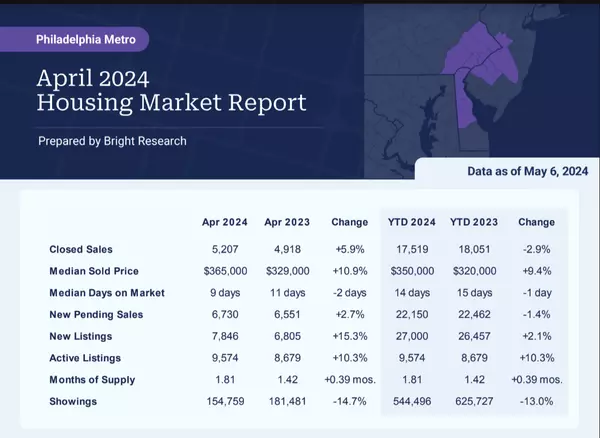Will Mortgage Rates Cool in August?
Mortgage Rates Poised for Potential Relief in August Homebuyers eagerly awaiting a reprieve from elevated mortgage rates may find some optimism in the August forecast. While rates have shown resilience in recent months, experts suggest a potential cooldown is on the horizon. "We anticipate a slight
Ribbon Cutting!
Rydal Park & Waters is one of our company's largest neighbors. In a location that touches Abington, Rydal, and Jenkintown it is 55 acres of non-profit senior living. This morning we were invited to share in the ribbon cutting for a new sidewalk along Susquehanna Road. A new sidewalk...is ribb
New Philadelphia Area Real Estate Stats
Last week BrightMLS, the Multiple Listing Service that provides property information for thousands of REALTORS throughout the eastern seaboard released their latest data on housing. The information shows that the market is still amazingly good, especially in light of the fears that mortgage rate i

Quinn & Wilson
Phone:+1(215) 885-7600




